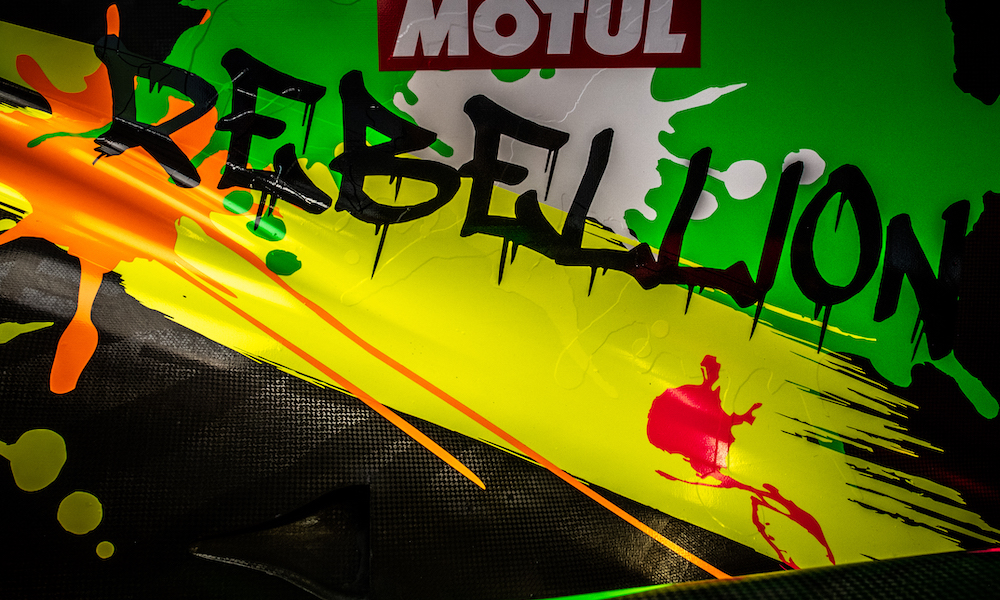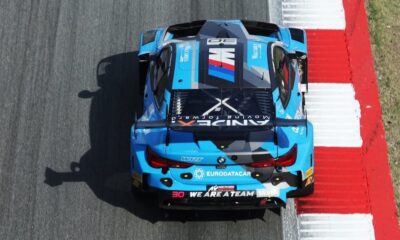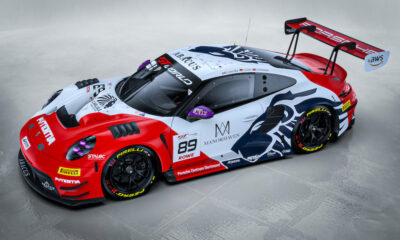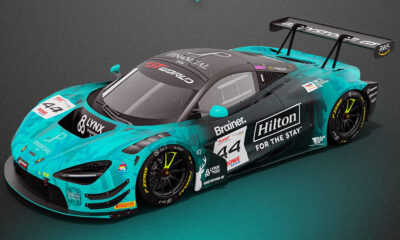
Photo: MPS Agency
Longtime LMP1 privateer Rebellion Racing could continue as a race team next year with a GT3 program, according to the Swiss organization’s CEO Calim Bouhadra.
Rebellion declared in February that it would be ceasing “all sport-business activities”, including its entry into the FIA World Endurance Championship’s top prototype class, after this year’s 24 Hours of Le Mans.
It now has plans to contest one more WEC race beyond Le Mans following changes to the series’ calendar, but Bouhadra told Sportscar365 that he also sees the team continuing beyond 2020 in a different capacity.
The plan includes a scaled-up return to the Dakar Rally with two cars – one featuring Romain Dumas – and a possible sports car switch from prototype to GT3 machinery.
The Rebellion watchmaking company was recently confirmed as the official timekeeper of GT World Challenge powered by AWS, taking over from Blancpain, and is looking at using this sponsorship as a way-in for its team.
“First, we need to at first see what is going on with the economic crisis and after, looking at what the different championships are going to propose us,” said Bouhadra.
“We are involved in GT racing as a new partner for GT World Challenge. We want to do it as well as possible.
“We have a strong partnership with GT World Challenge and SRO, so for sure I know we are going to do something to create a team.
“There is nothing certain, but I know that we are entrepreneurial and don’t want to just stay as a timekeeper. We are probably going to bring our value in this championship, and why not create a team to compete?”
Bouhadra admitted that it’s “too early” to discuss exact program details, including which car the team will run and which of the three regional GTWC series it would want to enter.
Rebellion’s WEC team is largely sourced from ORECA, however it’s not yet clear how this partnership might evolve into the team’s GT3 foray.
“We need to get experience in the first year to understand the championship because all championships are different,” said Bouhadra.
“We know about racing, but all championships have different structures and organizations. We would like to understand this before we take a decision.
“We need to know the people also, to create a link with everyone who is involved in the championship.
“After that, for me, it’s about opening a new book and then we start to write the story.”
“Completely Insane” for Team to Compete in LMDh, Hypercar as Privateer
Bouhadra added that Rebellion has drawn a line under its involvement in the WEC at the end of the current season, despite the desire to continue in motorsport next year.
Rebellion’s sporting involvement grew out of a partnership between company owner Alexandre Pesci’s Speedy Racing Team and Hugh Hayden’s Sebah Automotive in 2008.
The new team, which was christened Rebellion Racing in 2010, quickly developed into a familiar entrant on prototype grids worldwide.
It won Motul Petit Le Mans twice with its Lola LMP1s and has finished fourth at the 24 Hours of Le Mans on four occasions, whilst also clinching the 2017 WEC LMP2 title.
Rebellion was confirmed as a key technical partner for Peugeot’s return to top-level endurance racing at the start of 2020, but this tie-up fell apart two months later.
“We are probably the most successful privateer team in endurance, but we are not a factory,” said Bouhadra.
“The only thing we manufacture is watches. Being involved in LMDh or Le Mans Hypercar with a very strong budget, without having a return investment for your activity, is very tough.
“It would be completely insane to compete in this way. I don’t have the assurance that we have the budget to go into this type of competition.
“For Rebellion, I have big respect for the job that we did in endurance. We know what we are: a small player that has fun and makes people happy because we have a passion. But passion has a cost.
“The cost of the passion today is too big for Rebellion to even think about being involved in this type of project.”
Peugeot Partnership Would Have Been ‘Too Corporate’
Speaking about the short-lived partnership with Peugeot, Bouhadra said that Rebellion’s management felt disillusioned by the corporate nature of the factory program.
Peugeot originally stated it would build its own Le Mans Hypercar before expressing interest in the LMDh regulations that will enable the top IMSA category to race in WEC.
“Having a partnership like we decided to do with Peugeot; it had a two-sided effect,” explained Bouhadra.
“The good side was that we could afford the championship and contend for a victory because we were with the biggest factory that can achieve it.
“But [it meant] we were not a small privateer team anymore. You have to discuss budgets with another partner. You have to discuss about everything and agree on everything.
“The decisions are not as quick or as easy as when it was for us [as a privateer].
“What we like about Rebellion is that we are independent. We want to keep this attitude in our team.”


























